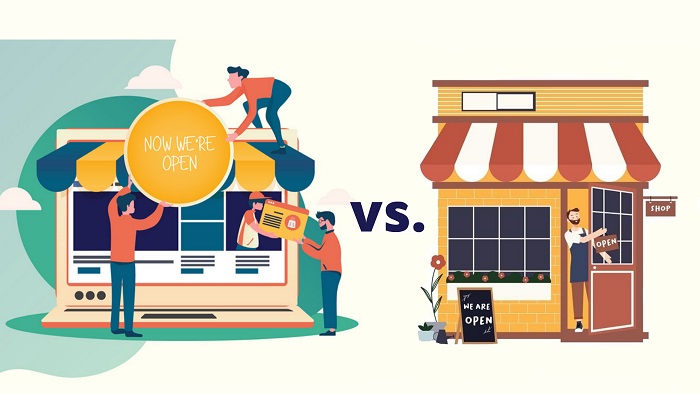Experts estimate that by 2023, eCommerce will account for more than 22% of retail sales.
So if you’re looking to start a new business with little capital, everyone might be telling you to start an eCommerce store.
But don’t be so quick to write off retail. When customers can see and inspect products in person, they’re more likely to buy them. And while it costs more to set up retail vs eCommerce, you can recoup that cost with increased sales.
So, what’s the verdict? Is retail or eCommerce better for your business?
Keep reading to find out!
Setup Costs
One of the main reasons businesses choose eCommerce vs retail is because of the lower setup costs.
You don’t need to rent or buy retail space. And if you start a dropshipping business, you don’t need to stock any products.
But retail businesses have much higher setup costs. You need to rent or buy retail space, and you need to figure out how much inventory to stock. You may also need to pay for renovations.
Technology also factors into your setup costs. For brick-and-mortar businesses, you’ll only have to set up a point-of-sale system and a website.
But with eCommerce, you need to invest in a secure computer system. This is necessary to prevent hackers from stealing your customers’ financial information.
Customer Service
When it comes to customer service, retail businesses have a clear advantage.
Customers can ask questions and get help in person. If they have a problem with a product, they can immediately return it to the store.
But if you have an eCommerce business, you have to offer customer service over the phone or online.
This can be difficult if the customer is having a problem with their order. And if they return a product, you have to figure out who will pay to ship it back.
Shopping Experience
One of the main advantages of eCommerce is the shopping experience. Customers can shop from anywhere, and they can buy anything they want.
But retail businesses offer a better shopping experience. Customers can see and touch the products, and they can get help from the sales staff.
In this case, the best choice depends on your product and your target customer. It’s better to sell products like shoes in-store because your customers can try them on rather than have to mail back shoes that don’t fit.
With brick-and-mortar stores, you can also take advantage of local advertising to attract your ideal customers.
But if your target customers don’t have the time to spend an afternoon shopping, then eCommerce is the better option.
Retail vs eCommerce: Which Will You Choose?
Now that you know the pros and cons of retail vs eCommerce, it’s up to you to decide which is the better option for your business.
If you’re looking for lower setup costs and a wider selection of products, eCommerce could be the better choice. But if you want your customers to have a better shopping experience, retail may be the better option.
If you found this article helpful, be sure to check out more blog posts from our business category!
